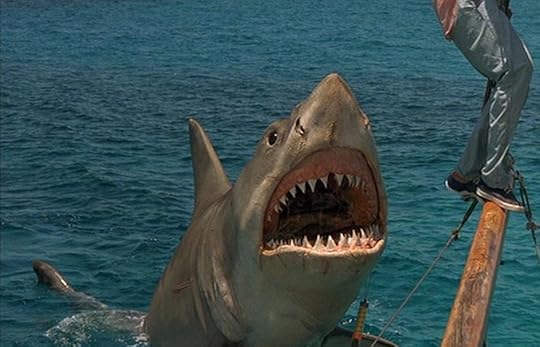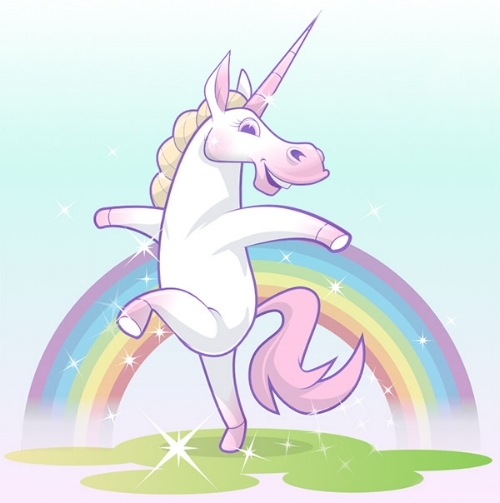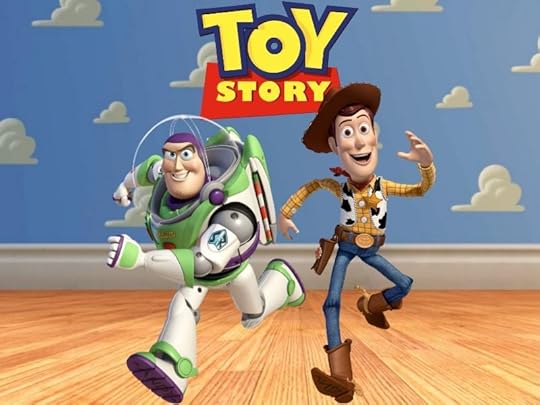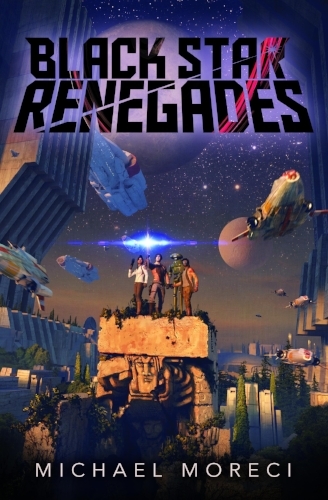On Pitching: The Ones That Get Away, Why That's Okay, and Why JAWS Should Be Your Guide

About three years ago, I found myself in a creative drought. For whatever reason, I couldn't get any of my ideas over the hump—the point in which an idea becomes a story (and, hopefully, a good one). Now, droughts happen for a number of reasons. Maybe you just don't have any unique, compelling ideas that drive you to build a story. Maybe you have a story, but you don't really know what it's about or how to tell it. The causes for why, creatively, things aren't click are numerous. And trust me, every single writer goes through droughts, and the troubling fact is that they can often lead to anxiety, doubt, and a whole mess of other bad things. So, the first thing I want to say is this:
If you're in a dry spell, don't panic.
I know it's not easy. When we fail, when we fail to meet our expectations, when we aren't able to perform at this thing we love, our first instinct as writers is to second guess everything. I've been there many times, and I'll be there again. But we all have to remember that, in all things, failure is natural. Inevitable, even. Now, I know this is hard to keep in mind when you're pounding your head against a desk, terrified that you'll never conjure another story worth telling, but going through creative valleys is part of the writing life. You can't be on all the time, nor can every key you punch create a magical unicorn. You're going to stink at what you do sometimes. That's all there is to it.

And while accepting that you're going to stink is important, what's more important is understanding that, as painful as they may be, sometimes being in a slump can be a good thing.
I'll explain.
See, while I was in this dry spell, I was still working. I had to—writing is simply what I do, all the time. Plus, you know—bills. There was a pitch I was working on, and I had very, very high hopes for this to be my first novel (this is predates Black Star Renegades by a few months). I worked on this thing for months and months. I shared it with friends and got feedback; I went back and forth with my agent with it, revising and reworking. But no matter how many pieces I moved around, changes I made, no matter how much work I put into this pitch, it refused to come together.
And you know why? Because it wasn't any good.
But let's talk about this, because it's not that simple. Because bad pitches—they're sometimes just a degree of from becoming a great pitch. Sometimes, they just need the slightest tweak, and everything falls into place. Other times, bad pitches are just bad, and there's all there is to it. But why? That's the trick—as writers, we struggle to recognize when our ideas aren't any good, and we struggle even more to know when it's time to let go. With this pitch in particular, I expended waaaaaay too much effort into when I could have been working on something else. But I couldn't see how busted my idea was; I couldn't see how it was going nowhere fast.
Now, there's any numbers of reasons why some pitches and ideas don't pop. Too many to count, so let's talk about the pitch I'm referring to in particular.
The idea I was trying to work around was simple: We're all familiar with the story of a machine becoming more human, right? Well, my idea was to invert that and tell a story of a human becoming more like a machine. It was meant to be a commentary on our relationship with technology, social media, things like that. How tech dehumanizes us more than the other way around.
That idea—I still think it's pretty cool. Not totally novel, but there's a lot you can do with it to make it interesting. But that idea alone, that core as described above—it's VERY broad. And when your starting point is general, everything gets even more vague from there. The story itself was about this former marine and current journalist who travels to Brazil—the cradle of robot tech in this world—to investigate his friend's death. The plot, though, quickly unravels. The tech world he encounters, I never really got a handle on whether I was talking about leaps in social media technology and how its impacts humans, robotics, or both. So everywhere the protagonist went, his encounters and conflicts were so incredibly broad—to the point of being formless. And let me tell you something important—seriously, mark this down:
Being specific, in all things, is key.
Which brings us to Jaws. Not only is it a great movie that forever changed the American cinematic landscape, but it also has the most perfect—and simple—concept behind it:
A killer shark terrorizes a small town, and the only man who can stop it is afraid to go into the water.
I can talk about this for hours. But let's just look at the basics:
One: The conflict is totally clear. There's a evil shark killing people, and it needs to be stopped.
Two: But wait—there's another layer of conflict. The only person who can stop the shark can't stop the shark. Now, not only does this raise the stakes, but it also gives a great character conflict. Will this character overcome his fear? Can he save the lives he's sworn to protect?
It's simple, it's dynamic, and it catches your attention immediately. This, my writer friends, is the gold standard for not only pitching a story, but getting to the heart of a story. If you can't boil your idea down to a few sentences, you're in trouble.
Take a few more examples:

Toy Story: When a new toy is introduced to the playroom, the former favored toy becomes jealous and tries to assert his place on top. These two favorite toys find themselves lost in the world and have to work together to return home.
Or my own book, Black Star Renegades: A young man comes into possession of the most powerful weapon in the galaxy. He's not meant to wield it, but if he doesn't rise to the call, the entire galaxy is screwed.
Granted, every story typically has more going on it. Toy Story is about friendship and loyalty; Black Star Renegades is about self-confidence and the power of unity. But what you need to tell a good story, fundamentally, is clarity. First and foremost—know what the story is, and be able to boil it down to a few sentences.
That is what defines a good pitch.
Also, a final word, because there's one ingredient in this mysterious cocktail that often gets overlooked. While having a great idea is one thing, loving your great idea is something totally different. And, believe me, to make your idea truly work, you absolutely, positively have to love it. Almost as much as Lenny loves rabbits in Of Mice and Men. Not quite that much, but as close as you can possibly get without, you know, breaking your idea's neck. Believe me, people know when you love something you've worked on and when you don't. It's not an accident that multiple reviews for Black Star Renegades have commented on how much fun I must have had writing it, and how the book is (as Kirkus said) “joyous and impossible not to love.” It's because that's true. I had the time of my life working on that book, and it was because I loved everything about it.
The point, in all this, is that sometimes—well, maybe all the time—the learning process in writing can be a painful one. I spent a lot of time on the aforementioned failed pitch, put a lot of hope into, and it went nowhere. But I learned from it—and what I learned made me better prepared for my next pitch, which turned out to be Wasted Space (my new comic coming out April 18 from Vault Comics).
My last bit of advice is to, well, follow what I laid out here. But not only that, remember that transforming your idea into a pitch as good as Jaws is really, really hard. If it was easy, more people would do it. Allow yourself to fail. To not get it right. To waste time pursuing an idea and have it go nowhere. But—learn. Learn why this particular idea didn't work, and don't make the same mistake next time.
Two other things:
If you like my writing advice, good news! I'm offering free tutorials, like this one, and it's only available to newsletter subscribers. Signing up is easy as can be. Either enter your email in the box in the upper right hand of this page, or follow this link.
And finally, if you'd like to support my work, that'd be great! My debut novel, Black Star Renegades, came out in January; if you like Star Wars and space adventures, this IS the book you're looking for.

Also, as mentioned above, I have a new comic coming out April 18—Wasted Space, which I describe as what would happen if Preacher was written by Philip K. Dick. Preorder it with your local comic shop today!
Thanks for reading—now get out there and write!



